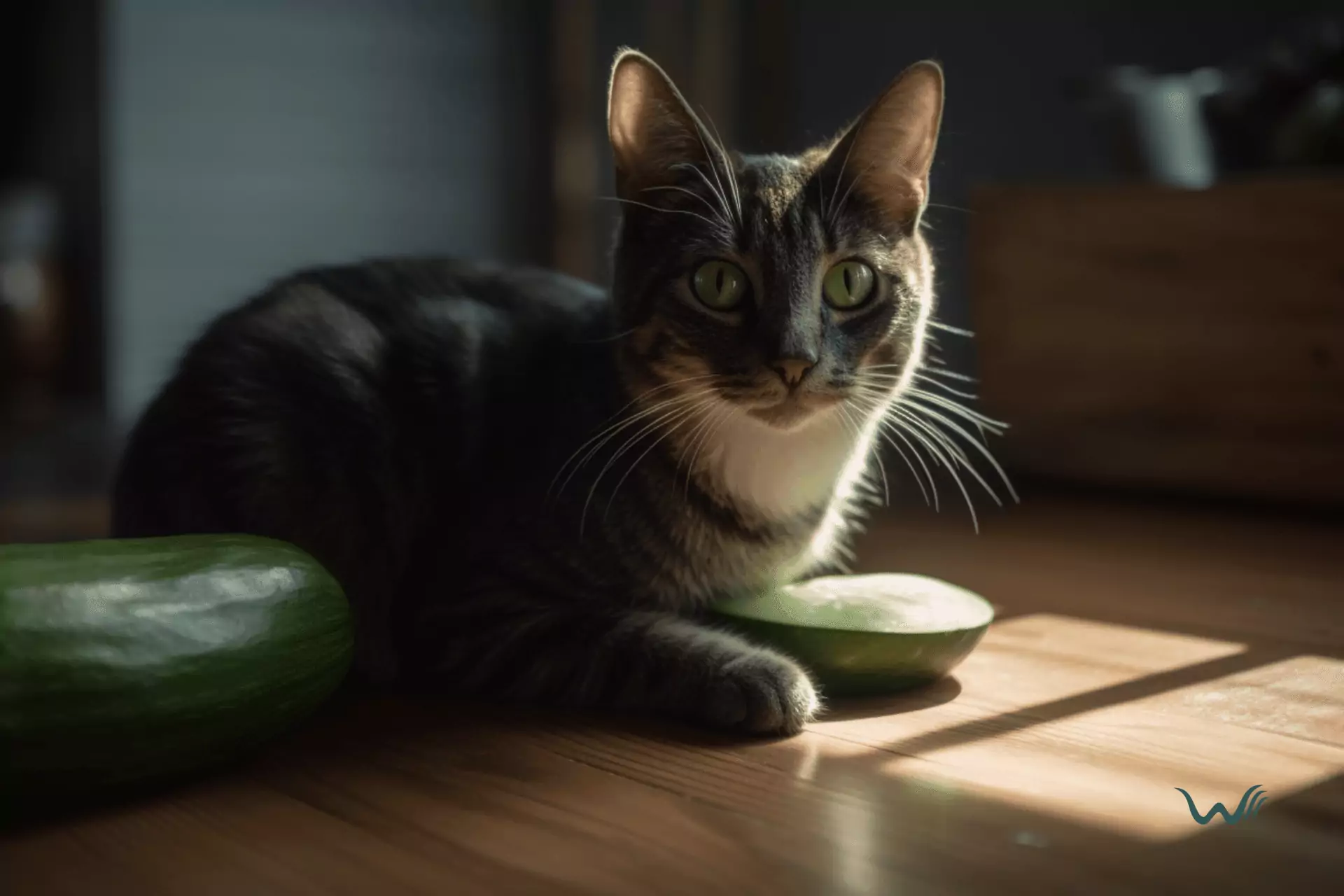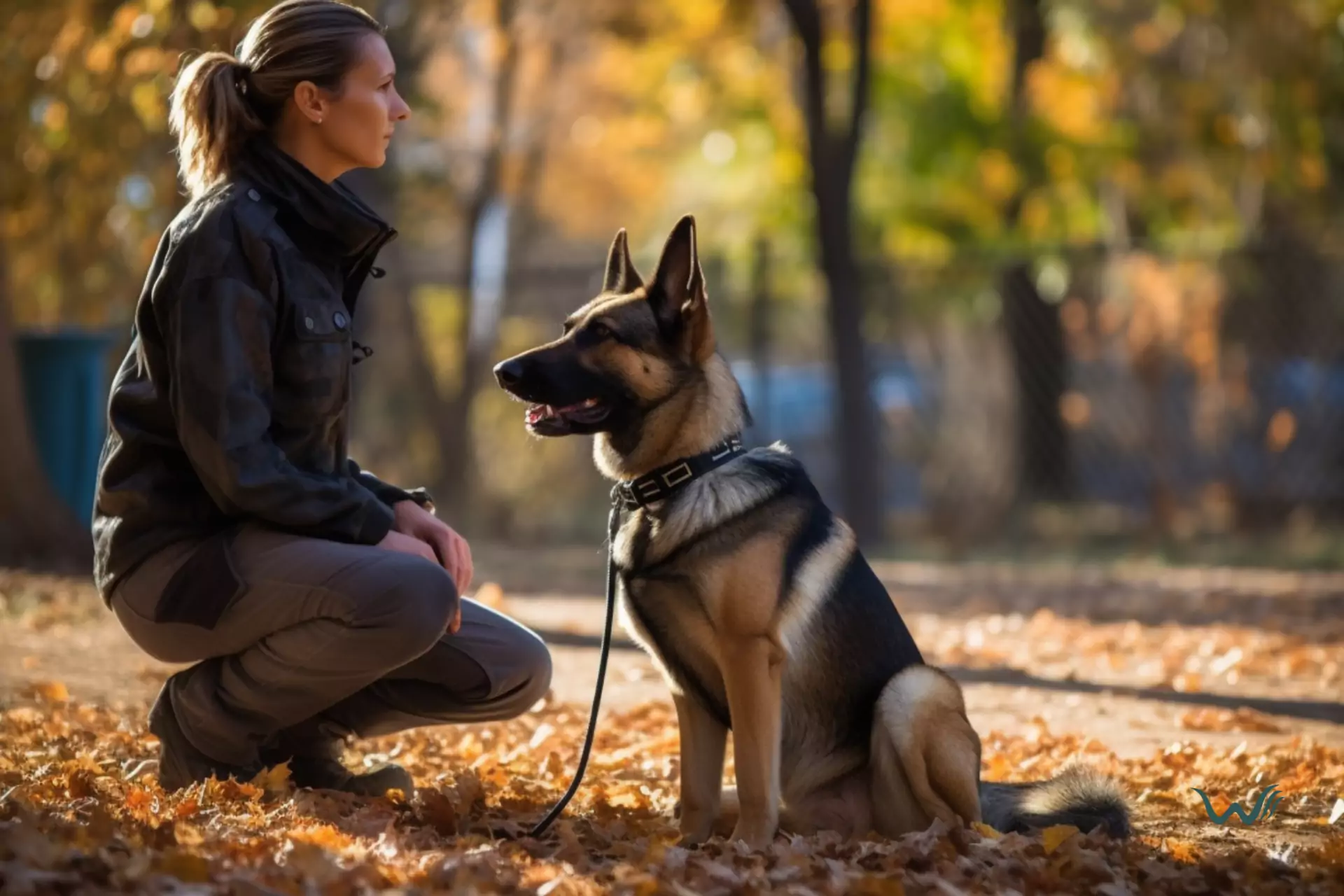

Are Cats Really Scared Of Cucumbers?
by Haley Mills
Last updated: January 30, 2024
Verified and Approved by:
Angela Morris,
MSW, LCSW
Fact Checked

Cats and cucumbers have become an internet sensation in recent years, with countless videos showing cats leaping into the air in terror upon seeing a cucumber placed behind them. This peculiar reaction has led many to wonder: are cats really scared of cucumbers?
In this article, we will examine feline reactions, explore potential explanations for this fear response, debunk myths and misconceptions, and provide tips for ensuring your cat’s well-being.
The internet is rife with videos capturing cats’ startling reactions to cucumbers, leaving viewers both amused and perplexed. However, it is essential to approach this phenomenon with a scientific lens, ascribing to it more than just a mere fascination with feline antics. By understanding the intricacies of a cat’s behavior and psychology, we can delve into the true nature of their reaction to cucumbers and uncover the underlying reasons behind this seemingly irrational fear.
Through a combination of knowledge and analysis, we aim to shed light on the question that has puzzled cat owners and enthusiasts alike: are cats genuinely scared of cucumbers?
The Phenomenon of Cats and Cucumbers
Have you ever wondered if cats are truly terrified of cucumbers or if it’s just a viral internet sensation? The phenomenon of cats and cucumbers has gained significant attention in recent years, with countless videos showcasing feline reactions to the green vegetable.
However, it’s important to approach this topic with a scientific lens and consider the evolutionary instincts and comparative studies that may shed light on this peculiar behavior.
When it comes to evolutionary instincts, cats are natural predators with a keen sense of alertness to potential threats. This heightened awareness can be traced back to their ancestors, who needed to be constantly vigilant in order to survive in the wild.
The sudden appearance of an unfamiliar object, such as a cucumber, can trigger a fear response in cats due to their inherent instinct to be cautious of anything that could potentially be a danger. This reaction is not exclusive to cucumbers; other objects or sudden movements can elicit similar responses from cats.
Comparative studies have shown that cats may not necessarily be scared of cucumbers specifically, but rather of any unexpected object that appears behind them without warning. In one study, researchers presented cats with various objects, including cucumbers, and observed their reactions.
The results indicated that cats reacted similarly to other objects, such as plastic bags or even stuffed animals, when they were placed behind them without their knowledge. This suggests that the surprise element of the object, rather than its specific nature, triggers the fear response in cats.
Understanding Feline Reactions
Understanding feline reactions can shed light on their behavior around certain objects. Cats, like any other animal, have their own set of fears and phobias. While cucumbers may not be a common fear for all cats, some may exhibit a startled or scared reaction when confronted with this particular vegetable.
It is important to understand that cats are highly sensitive to their surroundings and can easily be caught off guard by unexpected objects or stimuli.
One possible explanation for cats’ fear of cucumbers is behavioral conditioning. If a cat has had a negative experience with cucumbers in the past, such as being startled by one falling or being chased by a person wielding a cucumber, it may associate cucumbers with fear or danger. This association can then lead to a fear response whenever the cat encounters a cucumber again. This kind of conditioning can happen with any object or situation.
Additionally, cats have a natural instinct to be wary of unfamiliar objects in their environment. This is a survival mechanism that helps them stay alert to potential threats. In the case of cucumbers, their long and slender shape may resemble a snake, which is a common predator for cats. This resemblance could trigger a fear response in some cats, as they instinctively associate snakes with danger.
Potential Explanations for the Fear Response
One possible explanation for this fear response in cats could be linked to their natural instinct for self-preservation. Cats have evolved as predators, and their survival depends on their ability to recognize potential threats and react accordingly. When a cat encounters an unfamiliar object, especially one that suddenly appears without warning, it triggers a fear response as a defense mechanism. This instinctual fear response may be heightened when the object resembles a snake, which is a common predator for cats.
There are also other factors that may contribute to the fear response in cats. Conditioning and learned behavior can play a role in how cats react to certain stimuli. If a cat has had a negative experience with a particular object in the past, it’s more likely to be fearful of similar objects in the future. This learned fear response can be attributed to classical conditioning, where the cat associates the object with a negative outcome.
Additionally, cats are highly sensitive to changes in their environment, and sudden changes or unexpected stimuli can be perceived as threatening. This heightened sensitivity may explain why cats react fearfully to cucumbers, as they’re often placed behind them without their knowledge or warning.
Can a Cucumber Scare a Cat Enough to Make It Climb a Tree?
Yes, a cucumber can startle a cat enough to make it climb a tree. This bizarre behavior is often seen in viral videos and has become a popular topic of discussion among pet owners. Many theories have been proposed for why cats climb trees when confronted with unexpected objects like cucumbers.
Debunking Myths and Misconceptions
Contrary to popular belief, felines have different reactions to cucumbers than previously thought. The idea that cats are scared of cucumbers became a viral sensation, with numerous videos capturing the startled response of cats when they see a cucumber placed behind them. However, it’s important to approach this topic with a critical lens and examine feline behavior in a scientific manner.
Firstly, it’s crucial to acknowledge that not all cats exhibit fear or startle responses when they encounter cucumbers. This suggests that the fear response may not be universal among all felines.
Additionally, it’s important to consider the context in which these videos were filmed. Placing an unfamiliar object, such as a cucumber, behind a cat while it is eating or engaged in an activity can naturally startle the animal. The cat’s reaction may be a response to the sudden appearance of an unexpected object rather than a specific fear of cucumbers.
Furthermore, there are several common cat misconceptions that contribute to the belief that cats are scared of cucumbers. For example, cats are known to be cautious and easily startled by unfamiliar objects or sudden movements. This innate response helps them stay alert and avoid potential threats in their environment. Placing a cucumber behind a cat takes advantage of this natural behavior, leading to the startled reaction seen in the viral videos. However, it’s important to note that this reaction does not necessarily indicate a fear of cucumbers specifically.
Tips for Ensuring Your Cat’s Well-being
Promote the overall health and happiness of your feline friend with these essential tips.
First and foremost, ensuring that your cat has a healthy diet is crucial. Cats are obligate carnivores, which means that they require a diet that is high in animal protein. Providing them with high-quality cat food that is specifically formulated to meet their nutritional needs is essential. Additionally, it’s important to avoid feeding them human food, as many ingredients can be toxic to cats. A well-balanced diet will not only help keep your cat at a healthy weight, but it will also support their overall immune system and promote optimal organ function.
In addition to a healthy diet, regular vet check-ups are vital for your cat’s well-being. Cats are masters at hiding signs of illness or discomfort, so it’s important to have them examined by a veterinarian on a routine basis. During these check-ups, your vet will be able to assess your cat’s overall health, address any concerns or issues, and provide preventive care such as vaccinations and parasite control. Regular check-ups also allow for early detection of any potential health problems, which can greatly increase the chances of successful treatment and management.
By prioritizing a healthy diet and regular vet check-ups, you can help ensure that your cat lives a long and happy life.
Certify Your Emotional Support Animal Today

Why You Can Rely on Us?
At Wellness Wag, we believe your pet deserves care rooted in both science and compassion. Each article is carefully researched, written in clear language for pet owners, and then reviewed by qualified professionals to ensure the information is evidence-based, current, and practical for real-life care. Our goal is to help you feel confident in making informed decisions about your pet’s health and well-being.
Reviewed by
Angela Morris, MSW, LCSW
Angela is a licensed clinical social worker with 20 years of experience in patient advocacy and community mental health. She has assisted numerous clients with ESA evaluations and brings a deep understanding of disability accommodations, ensuring that all information is accurate, supportive, and practical.

Written by :
Haley Mills
Last Updated :
January 30, 2024










